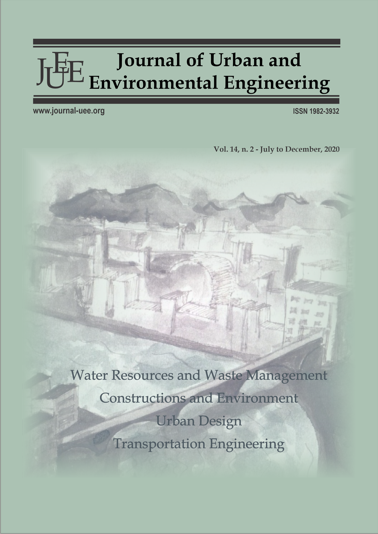CLIMATE MAPPING AND URBAN PLANNING: TECHNICAL AND COMMUNITY READING IN CÁCERES-MT, BRAZIL
DOI:
https://doi.org/10.4090/juee.2020.v14n2.218-235Abstract
Due to the accelerated urbanization process, Brazilian cities grow with little or no urban planning, and when it is present, climate issues are generally not considered, especially in small and medium-sized cities. Thus, the present research had as objective to evaluate a method of application of climatic knowledge throughout the process of revision of the Municipal Master Plan of Cáceres-MT. The methodology used to evaluate climatic variables is based on data provided by INMET and mobile transect measurements within the urban perimeter. Through this, it was possible to know the behavior of air temperature, relative humidity, precipitation, wind speed and direction during the dry season and also over the years. Thus, through mobile transect measurements, a temperature difference between the analyzed points of 1.2ºC in the morning period and 1.9ºC in the afternoon and evening periods could be observed. As for humidity, a difference of 10% was observed in the morning period and 9% in the afternoon and evening periods. Therefore, through the phases of the Master Plan (diagnosis, prognosis and public management), proposals have been prepared to mitigate the identified harmful effects of the most affected areas in relation to the climate, and thus, contribute to the review process of the Municipal Master Plan of Cáceres-MT with climatic knowledge.




